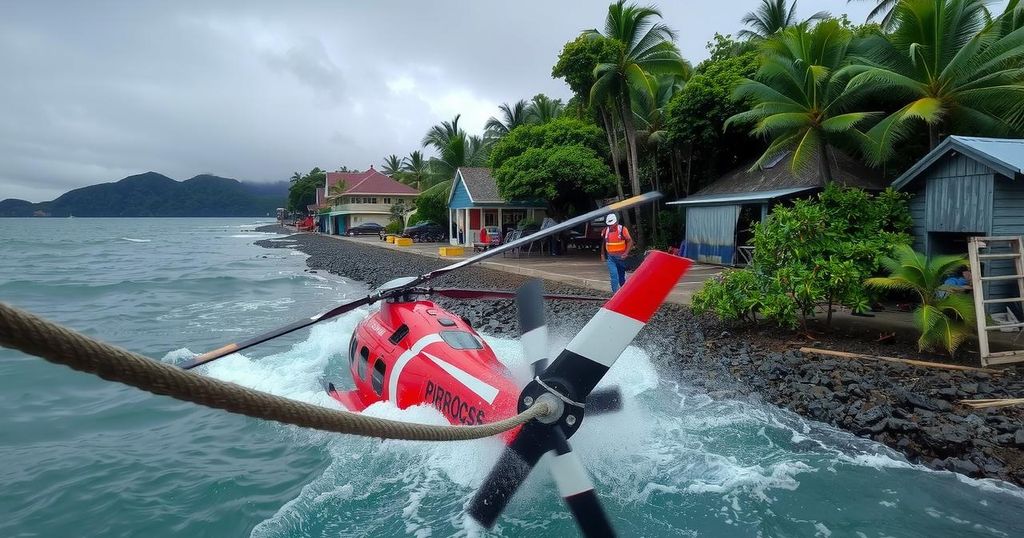A rescue operation is underway in Mayotte after Cyclone Chido, the strongest in nearly 90 years, caused extensive damage, particularly affecting poorer communities. Emergency supplies have started to arrive, with hundreds of French soldiers deployed to assist in recovery efforts.
A rescue operation has commenced in Mayotte, a French island territory located off the southeast coast of Africa, following Cyclone Chido, which has been described as the most powerful cyclone to impact the region in nearly 90 years. The cyclone unleashed destructive winds exceeding 140 miles per hour (225 kilometers per hour), causing widespread devastation to infrastructure, including homes, power lines, roads, the main airport, and the local hospital. The poorest residents of the island, many of whom reside in substandard housing, have suffered the most, as their makeshift roofs were torn off by the cyclone’s ferocity.
In response to the calamity, emergency supplies have begun to arrive, with one flight delivering materials for emergency shelters, though many individuals still lack access to essential resources such as food, water, electricity, and internet services. Over 100 French soldiers have arrived to assist with the ongoing rescue efforts, with an additional 160 soldiers en route. Mayotte consists of the two primary islands of Grande-Terre and Petite-Terre and is home to approximately 321,000 residents. Given its status as a French territory, it operates under the same legal framework as mainland France, even though it is located nearly 5,000 miles away from Paris. An emergency meeting is anticipated with French President Emmanuel Macron to address the crisis as more relief supplies and equipment are dispatched from Reunion Island, another overseas French territory. Cyclones, similar to hurricanes and typhoons, are named differently based on their geographic location and are typically formed over the South Pacific and Indian Ocean, with cyclone season occurring from December to March in Mayotte.
Mayotte is an archipelago situated in the south-eastern Indian Ocean. It is a French overseas department, which subjects it to the legal and administrative framework of France, despite its significant geographical distance from the mainland. Cyclone Chido’s impact marks a stark moment for the region, highlighting vulnerabilities of lower-income populations who inhabit poorly built structures. Cyclones represent a significant natural hazard for Mayotte, emphasizing the importance of preparedness and resilience in the face of climate-related disasters, with cyclones forming predominantly during designated seasons.
In summary, Cyclone Chido has caused unprecedented destruction in Mayotte, prompting a significant rescue operation to address the immediate needs of affected communities. With initial aid arriving and military support bolstering rescue efforts, the situation remains dire as populations grapple with the aftermath of the cyclone. The event serves as a critical reminder of the importance of disaster preparedness and the ongoing need for infrastructural improvement in vulnerable areas.
Original Source: www.bbc.co.uk






